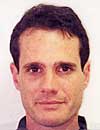IMG: Gambling,
Conflict of Interest, and Reform?
Matt Cronin
 |
Ted Forstmann, billionaire, IMG owner, sports bettor. |
It doesn't look like Ted Forstmann, the billionaire chairman of the sports and entertainment agency IMG, will ever be sanctioned for placing a $40,000 bet on Roger Federer to win the 2007 French Open final over Rafael Nadal.
There is little that the Tennis Integrity Unit can do about Forstmann's bet, because the unit itself didn't exist until 2008 and the anti-corruption code that prohibits agents from betting on the sport didn't come into play until January 2009.
But what it could do, at the very least, is suggest to the sport's ruling bodies (the ITF, ATP, WTA and Grand Slam Committee) that new rules be in put in place limiting the influence of any corporation that is in a position to seriously damage the integrity of the sport.
And that's exactly the position IMG stands today. It is without question the most influential company in the sport, representing dozens of players (and many of them high profile ones such as Federer, Nadal, Venus Williams and Maria Sharapova), owning tournaments, negotiating TV rights and sponsorships and also holding positions on the tours' board of directors. And that's just in tennis.
IMG has its hands in everything and, as a company founded purely on a profit motive, it simply cannot be trusted to police itself, despite its recent promises to do so when it comes to gambling.
 |
Mark McCormack as a young man around the time he founded IMG. |
IMG was founded by Mark McCormack, but when he died, the firm began to drift. The following year, Forstmann came along. He has had a controversial Wall Street career as the head of his own private equity firm and was a central character in the infamous book "Barbarians At the Gate." He had been a friend of McCormack's, and paid $750 million to his friend's estate to acquire IMG.
That the billionaire Forstmann bet money on Federer is not a threat in and of itself to the sport, unless he was seeking to influence the outcome. Both he and Federer deny that Forstmann received any inside information in a match where Federer was crushed by Nadal. And it's hard not to believe Roger on that one.
The man who is filing suit against him and acted as his go between, Jim Agate, alleges that Forstmann told him he was betting so much because he had talked with Federer, but Forstmann denies that any real infomation was exchanged. "It was bad judgment," Forstmann said in an interview. "I would have been rooting for him just as hard had I had no money on him at all."
Unless all the financial data on him is wrong (and in 2009 Forstmann was ranked No. 71 on Forbes list of the world's top 100 billionaires), Forstmann has no need to earn money off of gambling.
 |
Federer says no real information was exchanged. |
What he appears to be, though, is an addicted gambler. The lawsuit alleges that he bet more than $600,000 on college football andcollege basketball while his agency was representing top college coaches Problematically, his firm also owns a college licensing and marketing company, as well as and a communications company that is a partner of the NCAA, which offers corporate sponsorships, radio and television programs and more. IMG is also is the licensing agency for nearly 200 collegiate properties, including the Rose Bowl.
Forstmann says he's never been involved directly in the firm's representation of college coaches. Of course, Forstmann is never going to admit that he tried to influence the outcome of collegiate game, but given that he's the head of the company, it's highly improbable that he never talked to any coach in any capacity.
If this can be proven and he was gambling at the time, the NCAA may very well look into the matter. The result could be yet another blow to the already tattered image of collegiate athletics. But that is not tennis' problem, unless of course, he bet on college tennis matches.
The gambling problem in tennis goes back to 2007 when Betfair voided $7 million in bets in suspicious match involving former top 5 player Nikolay Davydenko of Russia and Martin Vassallo Arguello of Argentina.
The sport's governing bodies pitched in to fund the Tennis Integrity Unit. The Integrity Unit in turn hired an ex-cop named Jeff Rees who alleged at the time that he was suspicious of betting activity in around 45 matches. In the past three years though, the only players who have been suspended have been minor ones such as five Italian tennis players including Potito Starace, Alessio di Mauro and Daniele Bracciali.
 |
$7 million in Daydenko bets first brought the issue to light. |
Those players, as well as the wife of the now deceased player Federico Luzzi, have brought a suit against the ATP Tour as they claim that receiving punishments for 100 to 270 days and fines ranging from $20,000 to $50,000 for placing small bets (Starace made five bets in the range of $130) were too harsh.
At the time, the Italian Tennis Federation said the ATP overreacted, but the suspensions still were put in place. Tthese players were, ironically, busted the same year that Forstmann bet on Federer. The suit, which is being heard in Florida, alleges that the ATP was "discriminately targeting them as low-ranked, less prominent professional tennis players...and by ignoring more serious violations...by high-ranked, more prominent professional tennis players in order to avoid negatively impacting its revenue and reputation."
That claim has yet to be proven. Meanwhile, however, the Austrian tennis player Daniel Koellerer and his manager Manfred Nareyka were suspended because Koellerer's website carried details of betting odds on matches and provided links to allow users to place bets, a clear offense in Anti-Corruption program. Koellerer was fined about $18,000and suspended for three months. His manager was suspended for one year.
Penalties should have been enforced in all the aforementioned cases, but how can the sport justify suspending Koellerer when some tournaments have gambling companies as sponsors? It makes no sense whatsoever.
 |
Daniel Koellerer: the Austrian player fined and suspended. |
In fairness, it's quite possible that no higher-ranked players have ever gambled on a match or thrown a match (they don't need the money like the lower ranked players do) and that the Tennis Integrity Unit has done such a bang-up job since 2007 that everyone is too scared to get involved with gambling at any level.
But that's unlikely and just in October of 2010 alone, bloggers who follow tennis betting closely were screaming about suspicious matches played in Moscow and St. Petersberg.
While I'm not going to name names, one match, between a veteran Eastern European player and a low ranked, obscure South American attracted more than $2.5 million of trades on Betfair alone and saw the odds move in the opposite direction to what was actually happening in the match.
It continues to astound me that there are hundreds of people out there laying large bets on matches involving obscure players. How are these gamblers/fans so familiar with players who rarely make it to a quarterfinal anywhere? As someone who has covered the tour closely for 18 years, I would have no idea how to predict the outcome of some of these matches. To me it just smells fishy.
Forstmann's will be deposed in his own suit this month and maybe this will shed more light on his gambling activity in tennis. But here's something that needs to be taken on immediately: given how far IMG has spread it wings in the sport, it's high time that the governing bodies sit down, take a serious look at it and look to limit any company (not just IMG) from have oversized influence in the sport.
 |
What should the "Integrity Unit" really do? |
Why? Imagine this scenario: star player X, who is an IMG client, is playing in an IMG owned tournament that is being broadcast in an IMG related deal which uses broadcasters that are represented by IMG. A volunteer tells the tournament director, who is also an IMG employee, that he heard suspicious talk about a match in the locker room.
Instead of immediately contacting the Tennis Integrity Unit, the tournament director goes to his friend, who is the agent of the star player, and asks what he should do. How likely is it that anyone is calling the Tennis Integrity Unit?
Or how about this? The volunteer who heard the locker room chatter gets frustrated that the tournament director did nothing, and goes to a TV producer he met at lunch and says, 'I have a big scoop for you that your broadcaster can use of the air." Do you think that the broadcaster, who consistently gets work from IMG, and may also be represented by IMG, is going to mention the potential scandal? I don't think so.
The point is that there is very little independent accountability in tennis and the self-interest of many related parties are closely interrelated. Too far fetched to consider? Maybe.
The Forstmann case is one tangible example of the tremendous potential for conflict of interest that has come to light. Who knows how many haven't? Regardless, the current circumstances should push the various tennis ruling bodies into action. Will it happen? Want to get a bet down on that?






